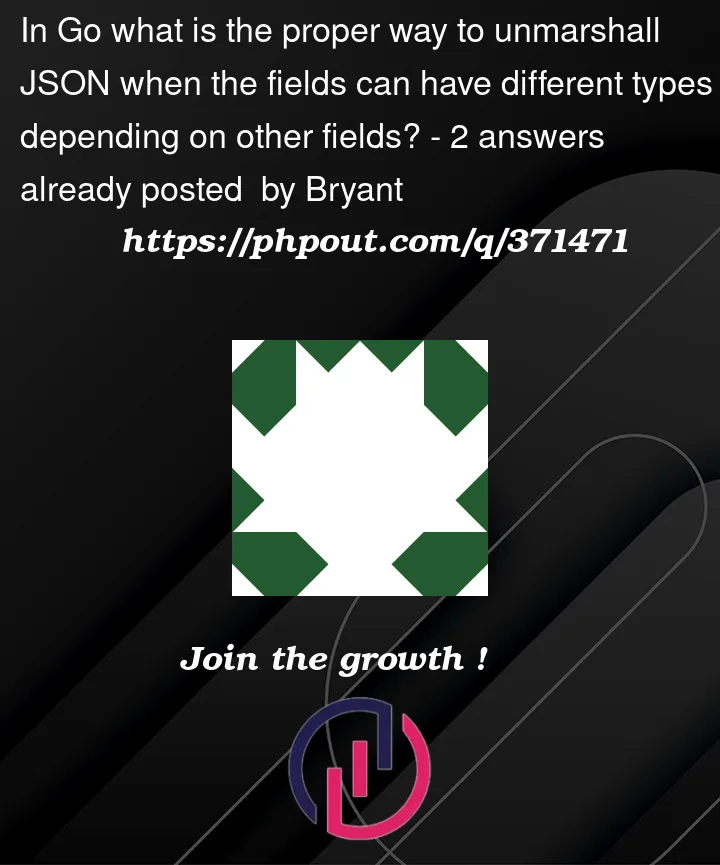Assume I have a JSON message that looks like this:
{
"type": string
"data": list of something that is based on above type
}
two examples might be
{
"type": "car"
"data": [{"color": "red", "mpg": 16.4}]
}
and
{
"type": "house"
"data": [{"color": "blue", "state": "CA"}]
}
I want to define a struct so I can basically only decode the type and then use that to properly unmarshal the data field. I tried the following
type message struct {
Type string `json:"type"`
Data []byte `json:"data"`
}
type car struct {
Color string
MPG float64
}
type house struct {
Color string
State string
}
erroneously thinking that it would just leave the Data field raw for me to unmarshal later into either the car or house struct. I know I can define Data as a []interface{} and do some other work to get what I want, but I was wondering if this is (currently) the best way in Go? In case it comes up, assume I cannot change the JSON definitions – I’m just the consumer of a service here.




2
Answers
This is a perfect use-case for
json.RawMessage. Check out theUnmarshalexample there.For your example, this would look something like:
Now what you do with the parsed result is kinda up to you and your program’s needs. Parse at the edge and only pass down the fully-typed message, add a
Parsed anyfield to the outer struct, etc.https://go.dev/play/p/5UPrW27LWlX